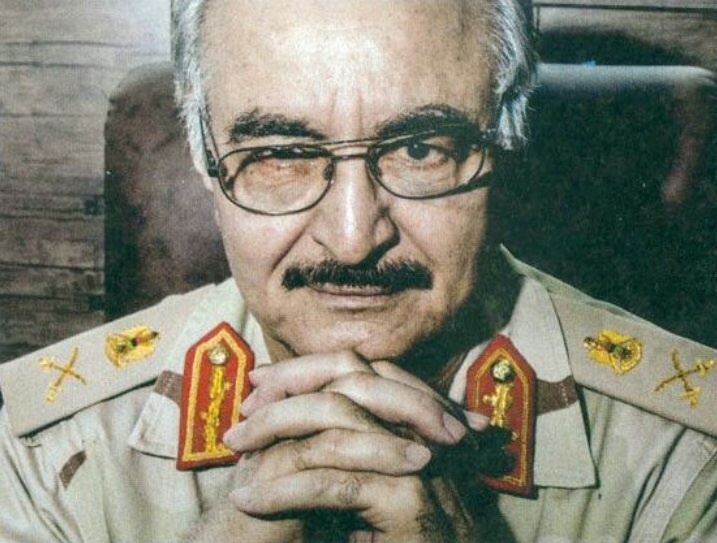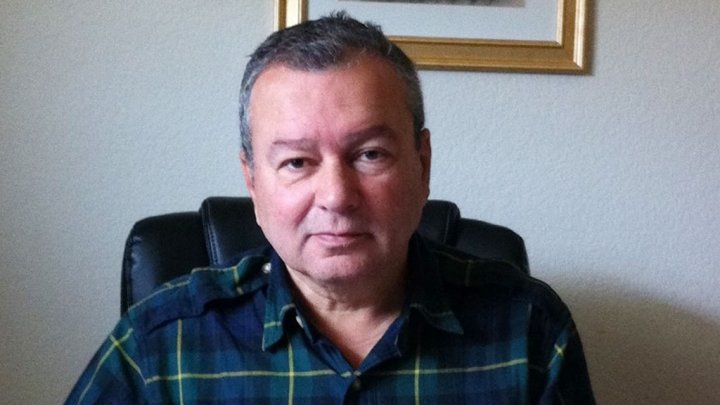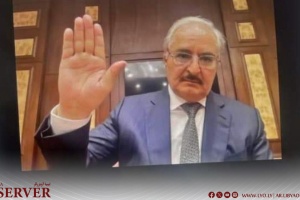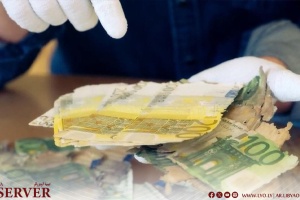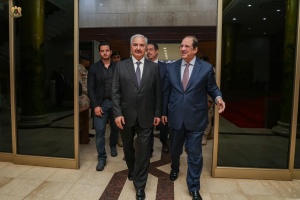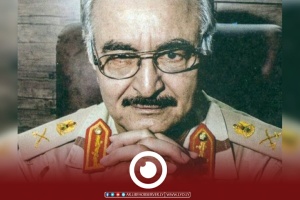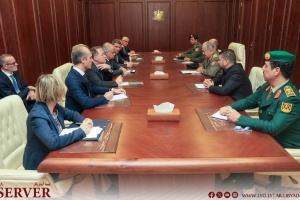Warlord Khalifa Haftar is having a pretty hard time after supporters and aides are continuing to stream out of his camp, the latest was Mohamed Buisier, his former political adviser.
In an interview with the London-based news website The New Arab on January 16, Buisier uncovered details on Haftar's behavior and how things are run inside self-styled army
Buisier explained that Haftar's aim is to gain power, and by any means, including force, which seems to be the primary tool for Haftar.
He mentioned that Haftar's participation in the elections came against the backdrop of outside pressure, underlining that his campaign will be based on two factors, intimidation, and his Egyptian allies. Yet, the recent developments might take him off the scene before the elections, as Buisier views.
The interview highlights the growing influence of Haftar's sons in decision-making, which sometimes bypasses Haftar himself, as well as other senior figures including his son-in-law and the manager of his office, Oun Furjani.
"This is due to the lack of an institutional control system, leaving things in the hands of Haftar's family, and creating a negative mood among his loyalists," Buisier indicates.
He also claimed that accusations of Haftar having ties with a former Israeli intelligence officer was true, and are based on facts and documents. The contract signed is worth 6 million dollars and was published on the website of the US Department of Justice.
"This was to flatter the decision-makers in Washington, knowing that Israel is the key to access US support, and this clearly explains why he had never mentioned the Palestinian suffering in his statements," Buisier pointed out.
Buisier spoke of other allegations, including the contract signed with the director of Grassroots Daniel Faraci to launch a campaign to promote Haftar's family in the US Congress. The process was confirmed by the contractor himself, who tweeted on his account on December 6 expressing his pride in signing the contract with Haftar.
The US Department of Justice binds the promotion companies that receive money from non-US parties such as Faraci to publish their contracts publicly.
Another matter was the accusation against Haftar's forces of looting large sums of money from the Central Bank of Libya in Benghazi, revealing that the rival governor of the Central Bank of Libya, Ali al-Habri is fully aware of the matter, but chose to keep a tight-lip on the incident for safety reasons.
Mohamed Buisier, Khalifa Haftar's former political adviser
According to Buisier, Haftar approached him at the beginning of the Dignity Operation in 2013 to obtain support from Washington.
"I, therefore, expressed my support for his war against "violent Islam" and opened a line of communication with the US State Department", Buisier said.
"I then started writing his speeches, arranging press interviews, and worked on framing the military operations in a political context, for any military action must have a political cover or else it will be like boxing in a dark room, but all my work was on voluntary basis, and not as a job," Buisier added.
He strenuously denied receiving any money from Haftar, and that he and his family are far from begging scraps from Haftar or other warlords in Libya. As for accusations to him of asking for money, he responded that such reports are false and were based on a fake paper.
On the contrary, Buisier claimed that Haftar owes him the equipment and other military needs for his army, including the bulletproof vest that he usually wears, along with cellular devices and other purposes, in addition, providing treatment for the war wounded and taking care of the families of those killed.
He also added that Haftar had asked him to prepare a study to establish a non-profit organization that will settle the war on terrorism in Libya. The study was to address the American public, in order to shape their opinion in his favour.
After naming Haftar as “Commander-in-Chief of the Libyan Army” in February 2015 by the Tobruk based Parliament, Buisier viewed that it was necessary for him to take a step back.
"Being an American citizen I was prohibited by law to work under any military institution other than the US, but I promised him that I will be there as a friend whenever he needed me," he said.
Buisier accused Haftar of being narrow-minded who never looked beyond his personal goals.
"This came more and more clear to me each time we bought up issues and challenges concerning the future of the state, he always spoke of being the only qualified person in Libya to rule the country, power was his main goal and he believed that force was the most effective and successful way to gain it," he said.
Buisier told the website that Haftar lacks sufficient knowledge and education that enables him to address such major issues relating to governance and power.
On many occasions, he found his words subjected by Haftar to the dualism of "either your with me, or against me", in addition to going too far in using force. In his knowledge, there was no line between power and cruelty. He anticipated that Haftar would face the same fate as the Serbian warlord Ratko Mladić and the Somali General Aidid.
He also drew attention to details concerning the young enthusiastic volunteers or Sahawat fighters "irregular soldiers" who formed the backbone of Haftar's army. Those who had to pay the highest price for Haftar's appetite for power; they sacrificed their lives and limbs during the previous war. He revealed that there are lawmakers in Libya who are determined to mount a case against Haftar in order to remove him from his post.
He made clear that he is close to all Libyan parties and is willing to be a bridge between his country and decision makers in the US.
As for his recent visit to Tripoli, he said that it was within his sphere of competence as an oil expert and had nothing to do with politics or the Tripoli-based government.
Buisier concluded his interview by stating that Haftar's figure will be carved in Libyan history with the image of the destroyed city of Benghazi.

